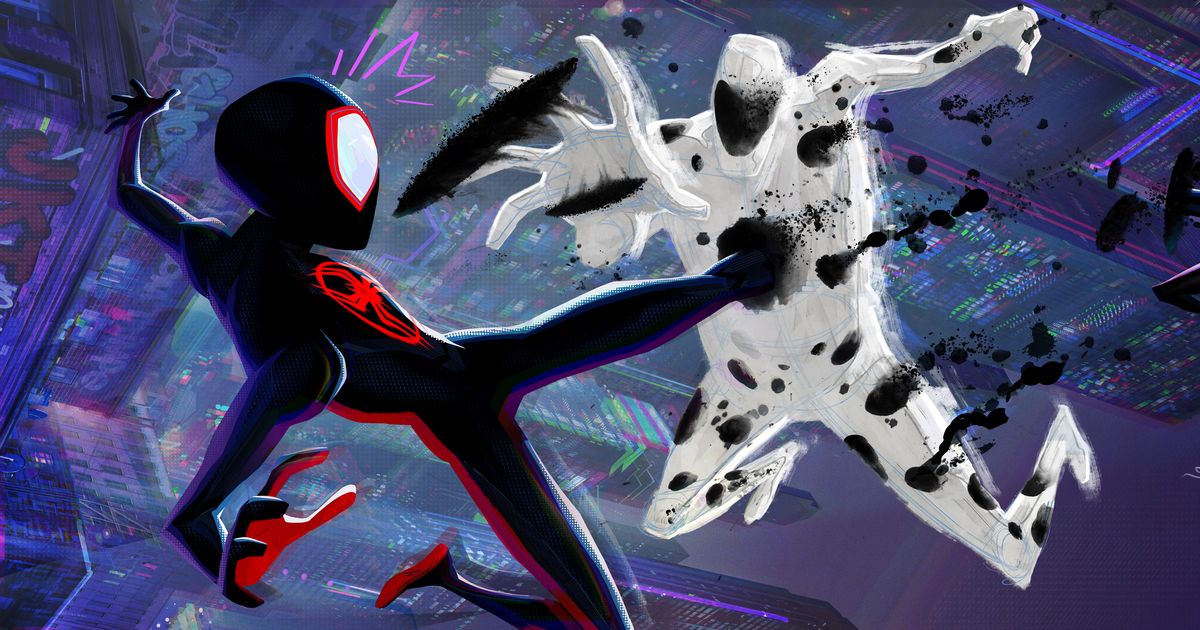- cross-posted to:
- ghazi@lemmy.blahaj.zone
If you ever wondered why very few animated movies look as good as Across the Spider-Verse…
From the article:
According to people who worked on the sequel, Across the Spider-Verse, it’s because the working conditions required to produce such artistry are not sustainable. Multiple Across the Spider-Verse crew members — ranging from artists to production executives who have worked anywhere from five to a dozen years in the animation business — describe the process of making the the $150 million Sony project as uniquely arduous, involving a relentless kind of revisionism that compelled approximately 100 artists to flee the movie before its completion. Four of these crew members agreed to speak pseudonymously about the sprint to finish the movie three years into the sequel’s development and production, a period whose franticness they attribute to Lord’s management style — in particular, his seeming inability to conceptualize 3-D animation during the early planning stages and his preference to edit fully rendered work instead.



There’s a fallacy from implication there: just because the film ended up being really good does not mean these methods were the only way the film could have been good. It’s not a zero sum game, you can make excellent movies and also not exploit your workers to do it. You just have to be humble enough to take another few months to finish it, a relatively small price to pay for treating your employees with decency.
Big difference between a job and a project. Projects will have crunch time. Relentless revisions is going to drive any team mad - but this director looks like they were striving for perfection and they made a fantastic film. Project work is not for everyone. Just quit if its not the environment you enjoy, but some people like to strive for that, and yes, time matters otherwise you become star citizen.
No, this was their job, not a project. They do this for a living. Jobs do not automatically have crunch time, crunch time is a factor of poor management combined with capitalistic inflexibility. It’s a systemic and societal flaw, not something to be excused as “not for everyone.” It’s unethical. You can just take more time, nothing delayed has ever ended up worse because of the delay, but a lot of delayed projects end up better and have happier crews after the fact compared to rushed projects. “Just quit” is a fucking awful thing to tell people who want to do a job well and still have a life, you don’t tell people to just stop having a paycheck if they can’t handle workplace abuse. This is everything wrong with modern film making and game design, just a complete lack of basic human decency and defending it by claiming the end justifies the means. How about “just treat your employees right and don’t be a piece of shit?” Or “learn to manage resources better.” Star Citizen is an apples to oranges comparison and it’s also cherry picking, the overwhelming majority of delayed media comes out after one or two delays. There should be labor laws that make crunch illegal.
Alright, well I disagree with you basically about everything. Project work is very different and people that just focus on it as a “job” and not a passion are poor workers that I’d never want on my team. I’ve encountered both working under me. I’m certainly not part of this antiwork rhetoric that is so popular these days on social media. So, agree to disagree.
I just don’t understand how you can rationalize this by saying it’s not a job. Do they use that paycheck to buy food and pay rent? Then it’s a job, not some arbitrary form of not-job where suddenly it’s ethically fine to abuse your employees. They’re not doing it for fun. It’s not just that I disagree with you, I can’t even see your perspective on this. What you’re arguing makes no logical sense.
I work in the media industry. Yes, sometimes there are times when you have to work like hell. But it shouldn’t be this way by default and expecting people to work insane hours to compensate for a lack of planning is stupid, unnecessary and burns out your team. If you really think like this, you’re the kind of person I would never want to work with.
By the sounds of the article the director didn’t understand how to plan for 3D animation - which just makes them a bad director who made others spend time fixing their mistakes.